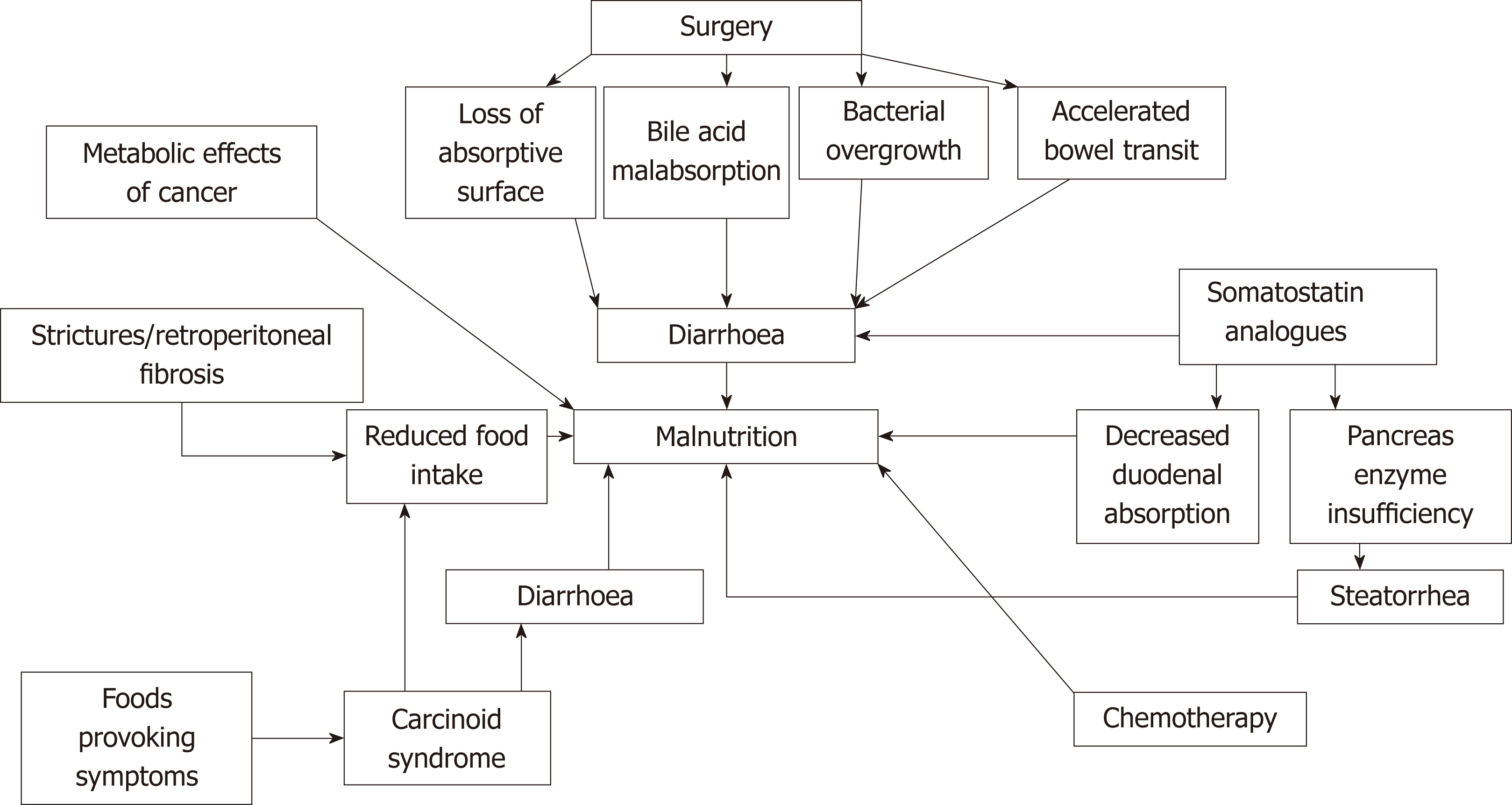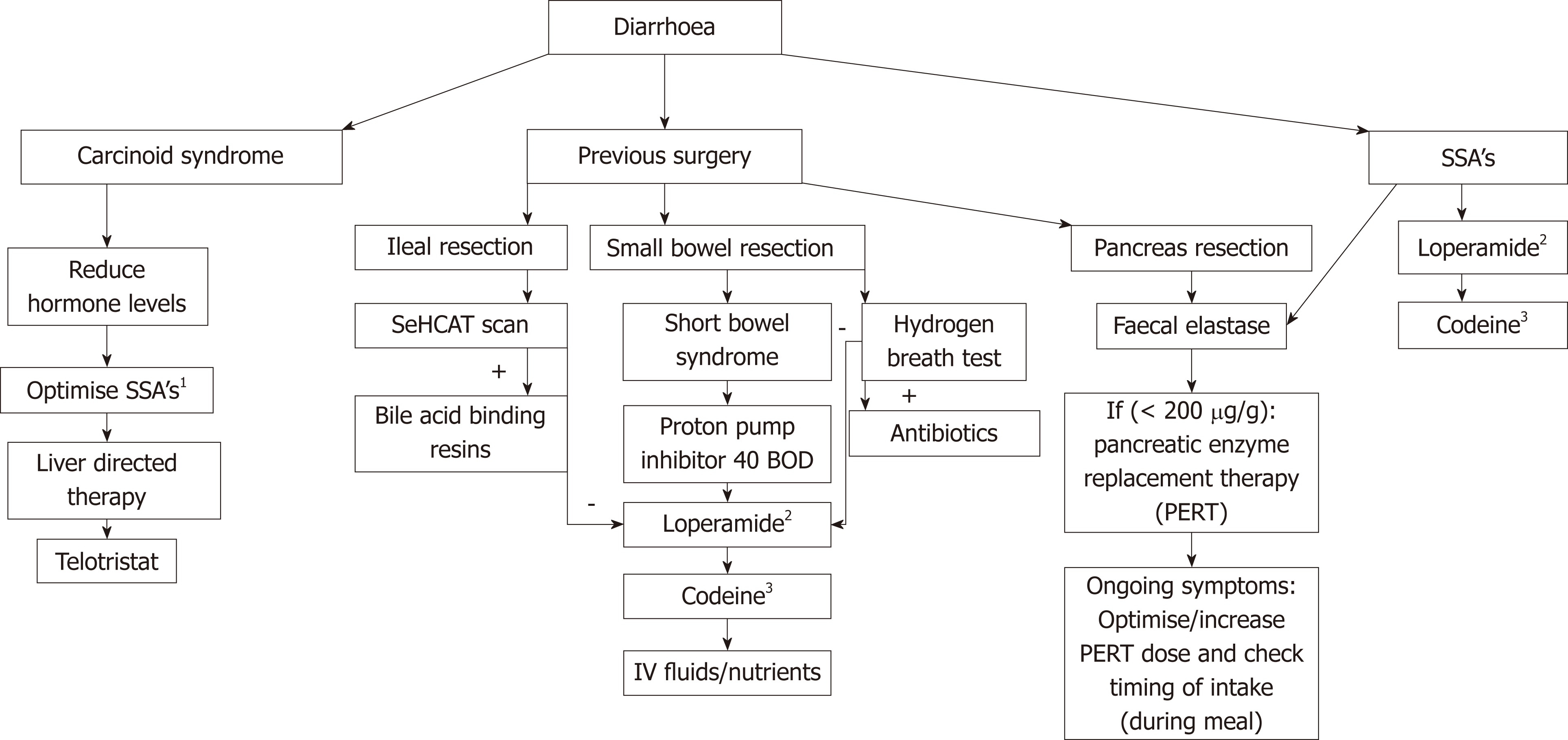©The Author(s) 2019.
World J Gastroenterol. Mar 14, 2019; 25(10): 1171-1184
Published online Mar 14, 2019. doi: 10.3748/wjg.v25.i10.1171
Published online Mar 14, 2019. doi: 10.3748/wjg.v25.i10.1171
Figure 1 Factors influencing malnutrition in patients with gastroenteropancreatic neuroendocrine neoplasms.
Summary of factors influencing the development of malnutrition in patients with gastroenteropancreatic neuroendocrine neoplasms.
Figure 2 Approach to patients with diarrhoea.
Summary of causes of diarrhoea in patients with gastroenteropancreatic neuroendocrine neoplasms, how to analyse and treatment advise. 1Optimise SSA’s: Increase dose, shorten interval or add short acting dose; 2Advise loperamide: Increasing dose 2-4-8 mg 4 times a day, up to 12-24 mg 4 times a day in short bowel syndrome; 3Advise codeine: 15-60 mg 4 times a day; Advise PERT: 1 × 25000 units of lipase per small meal 2 × 25000 units lipase per large meal, titrate up may need > 80000 units per large meal. SSA’s: Somatostatin analogue’s; SeHCAT: Selenium homotaurocholic acid conjugated with taurine; BOD: Twice a day; PERT: Pancreatic enzyme replacement therapy.
- Citation: Clement DS, Tesselaar ME, van Leerdam ME, Srirajaskanthan R, Ramage JK. Nutritional and vitamin status in patients with neuroendocrine neoplasms. World J Gastroenterol 2019; 25(10): 1171-1184
- URL: https://www.wjgnet.com/1007-9327/full/v25/i10/1171.htm
- DOI: https://dx.doi.org/10.3748/wjg.v25.i10.1171














